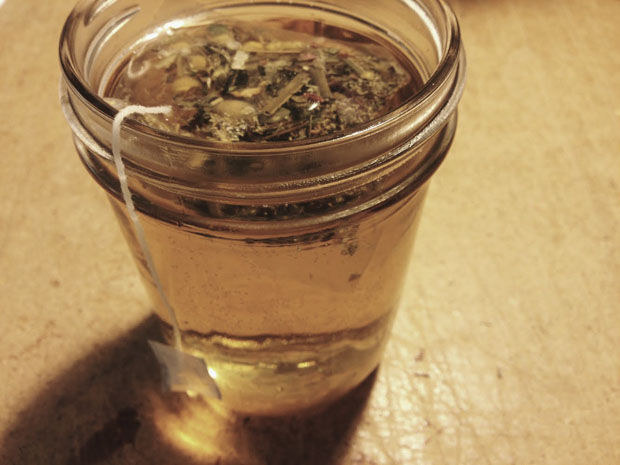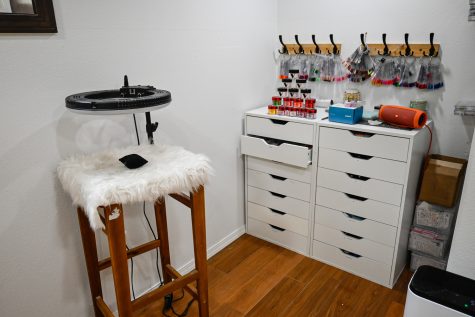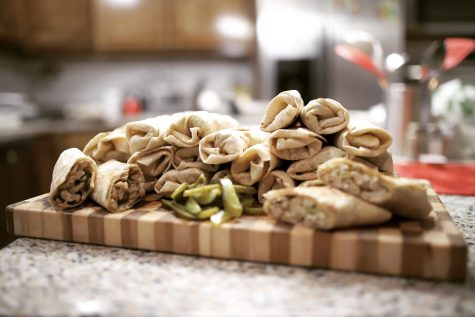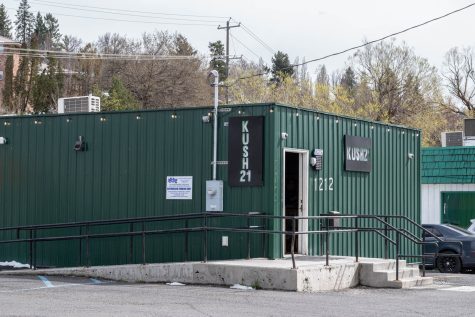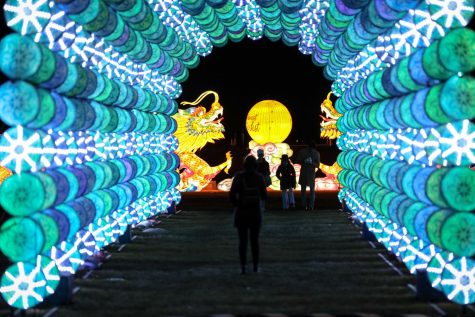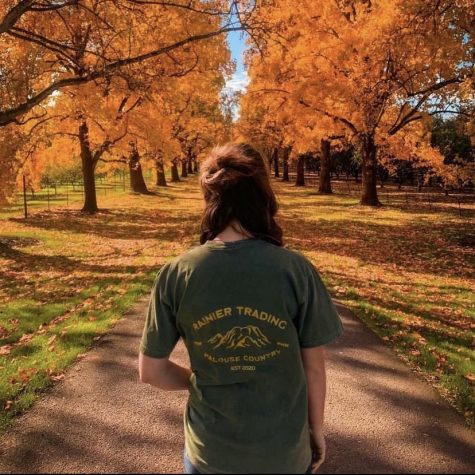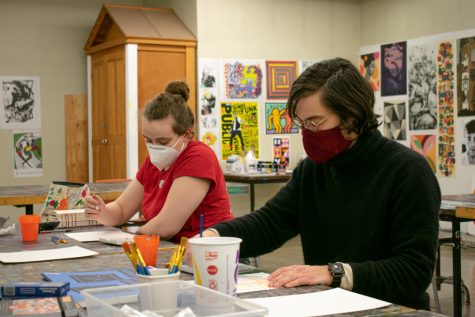Afternoon tea time
November 10, 2014
Don’t let the Mad Hatter or March Hare know, but a club devoted to tea is coming to WSU. Called Afternoon Tea, club members will find no riddles or butter-filled watches, but plenty of tea and lessons in other cultures.
The concept for the club began with club President Selamawit Gizatu, a junior studying strategic communications and general science and an ASWSU senator, and her obsession with tea. Gizatu said she would have tea time with her friends in the residence halls, which was a nice and calming experience.
“The goal is to be an environment where it’s very relaxed,” Gizatu said. “(It’s) not necessarily filled with things to do, but our plan is to come in, and we’d have tea from a certain culture.”
Lateasha Lewis, club adviser and graduate student studying educational leadership, described the club as a way to bridge cultures through something simple, like tea. The club not only serves tea in meetings, but also introduces ceremonies and the different preparation methods of the culture featured.
Gizatu is originally from Ethiopia and said she and her family would drink tea at breakfast, lunch and dinner. Even after moving to America, she continues the tradition of having tea every day.
“Ever since I could remember, (we) always had tea together,” Gizatu said. “I usually have a cup of tea at home.”
Lewis said she agreed to become the adviser because she loves tea as well and wanted to see what the club would be about. She thought it was a cool idea to have a club about something so simple.
“In my family….everyone drinks tea,” Lewis said. “Like our midnight snack we would have tea and cookies.”
Club Vice President Carissa Anderson, a senior majoring in global politics, said she hasn’t been and still isn’t the biggest tea drinker. Most everything she knew about tea came from what Gizatu introduced to her.
“I was inspired by Selamawit as well as some of the other people in the club,” she said. “I was really drawn to the relaxing atmosphere.”
When most people think of tea culture, Asian or British cultures might often come to mind. Lewis said every culture has a different way of preparing teas, depending on which part of the world it’s from.
Gizatu said she likes the health benefits of tea. Black tea usually has more caffeine, and some teas are good for headaches, digestion, and colds. Gizatu said green tea is good overall for the body.
“A lot of the people I talk to here don’t necessarily like (tea) more because they haven’t had tea,” she said.
Lewis said as an undergrad she preferred coffee over tea, but now she has started drinking tea more often. Although she can’t speak for the whole student body in the tea versus coffee debate, she said many switch over to tea when they try to stop drinking coffee.
“(We’ve) had a good response to the club,” Lewis said. “I think they’ll have a good turnout.”
With many types of tea and preparation, from greens and blacks to loose leaf and tea bags, Gizatu said it would be hard to choose a favorite, as it depends on her mood and she’s always looking to try a new kind.
Lewis said she enjoys green tea as a source of natural energy rather than the caffeine from coffee. She also likes chai tea for its flavor and creamy taste. Anderson agreed, and she said she enjoyed the pomegranate teas for the flavor.
“One thing that I’ve noticed the girls facing … is getting the cabinet together,” Lewis said. “Another challenge is … the challenge of getting tea companies to donate (tea) or give discounts.”
Gizatu said meetings will include a description of the featured tea and its country of origin. Following that, the members can take time to relax, socialize and maybe do some homework.
“(We) just sit down and talk about our day and not impose any standards and regulations,” Anderson said.
The club is meant to be an environment where people can be immersed in other cultures and enjoy tea together, whether it’s a tea addict or someone who’s never tried it before, Gizatu said.
“With Afternoon Tea, there’s a lot of health benefits,” she said. “The students get to taste (tea) and are more exposed. Then they can say if they like it or not.”
Afternoon Tea officers are planning to have their first meeting during Dead Week to create a calm environment for stressed-out students to study. Keep an eye out for their table in the CUB for more information.


